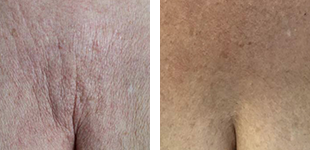Contents
About Propecia
Propecia (generic name: finasteride) has now been used for over a decade to treat men who want to fight male-pattern hair loss. Propecia works by blocking the conversion of testosterone into DHT, and in many men, this process puts a stop to male pattern hair loss.
In 1997 the FDA approved it to treat male pattern baldness cautioning against potential sexual dysfunction. Today, the FDA announces that the side effects could be permanent, despite discontinuation of the medication.
Side effects of Propecia include:
- impotence,
- loss of libido,
- trouble having an orgasm,
- abnormal ejaculation,
- swelling in your hands or feet,
- swelling or tenderness in your breasts,
- dizziness,
- weakness,
- skin rash
Talk to your doctor if you have concerns about these side effects.
Recent Studies On Propecia
A recent study on the persistent sexual side effects of finasteride demonstrated that 20% of subjects with male pattern hair loss reported persistent sexual dysfunction for more than 6 years. This suggests the possibility that the dysfunction may be permanent.
The side effects included both emotional symptoms such as depression and anxiety as well, ejaculation quality, change in genital sensation and low libido. At reassessment persistent sexual side effects continued to be present in 96% of subjects. Neither the length of finasteride use nor the duration of the sexual side effects correlated to changes in scores of sexual dysfunction.
Not every patient develops side effects; however, of those who do, not all side effects go away after discontinuing its use.
So, if you are deciding whether or not this medicine is right for you, make sure to factor this new data, to be able to make the right decision.
Next Steps
Schedule a consultation with Dr. Kormeili to discuss ways to prevent hair loss and male-patterned baldness. We look forward to hearing from you soon!
The post Propecia: Persistent Sexual Side Effects- Could They Be Permanent? appeared first on Kormeili, Tanya (drkormeilidermatology.com).
n
Dr. Tanya Kormeili is a nationally recognized, board-certified dermatologist and Clinical Professor of Dermatology at UCLA’s David Geffen School of Medicine. With prestigious training and extensive experience in both medical and cosmetic dermatology, she is renowned for her expertise in skin cancer treatment, laser and surgical procedures, and advanced aesthetic care. An accomplished researcher and frequent speaker, Dr. Kormeili has contributed groundbreaking work to dermatology literature and earned numerous international awards for her clinical excellence. Dedicated to educating patients and advancing the field, she combines cutting-edge science with a personalized approach to help every patient achieve healthy, radiant skin.






